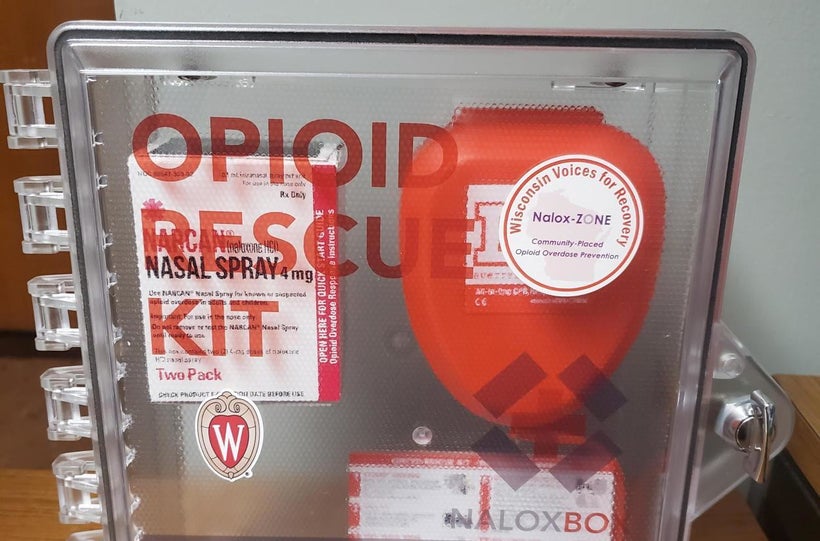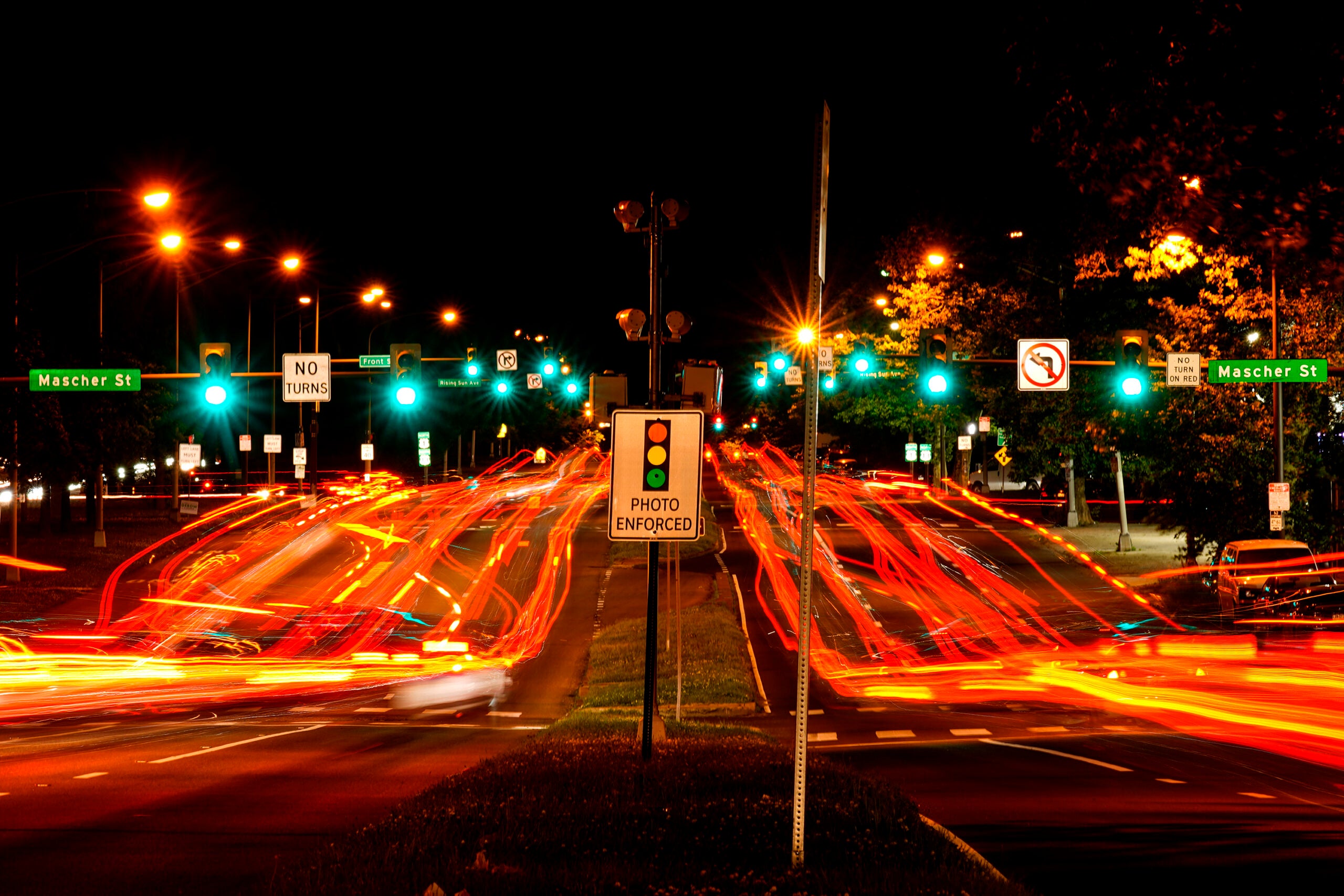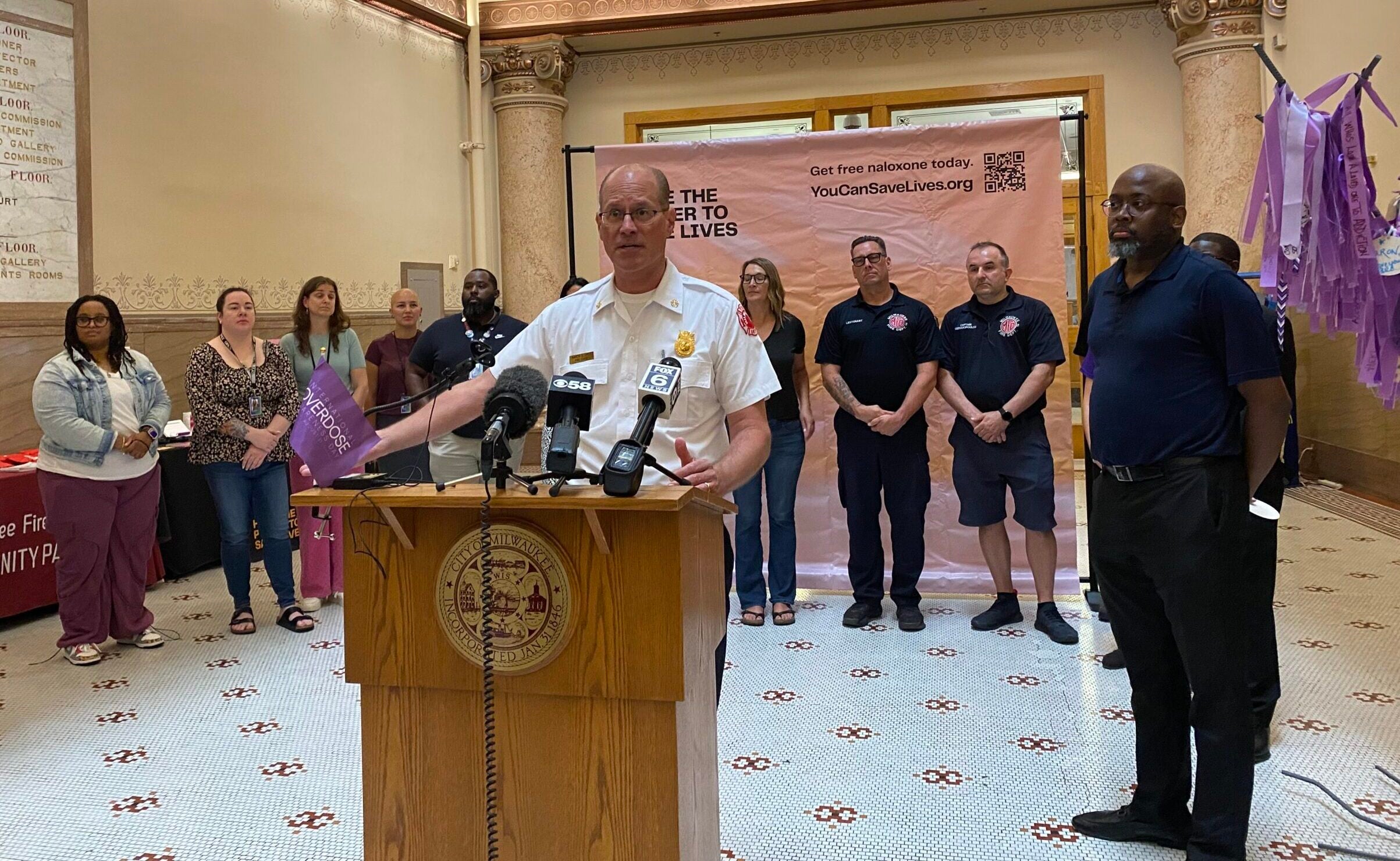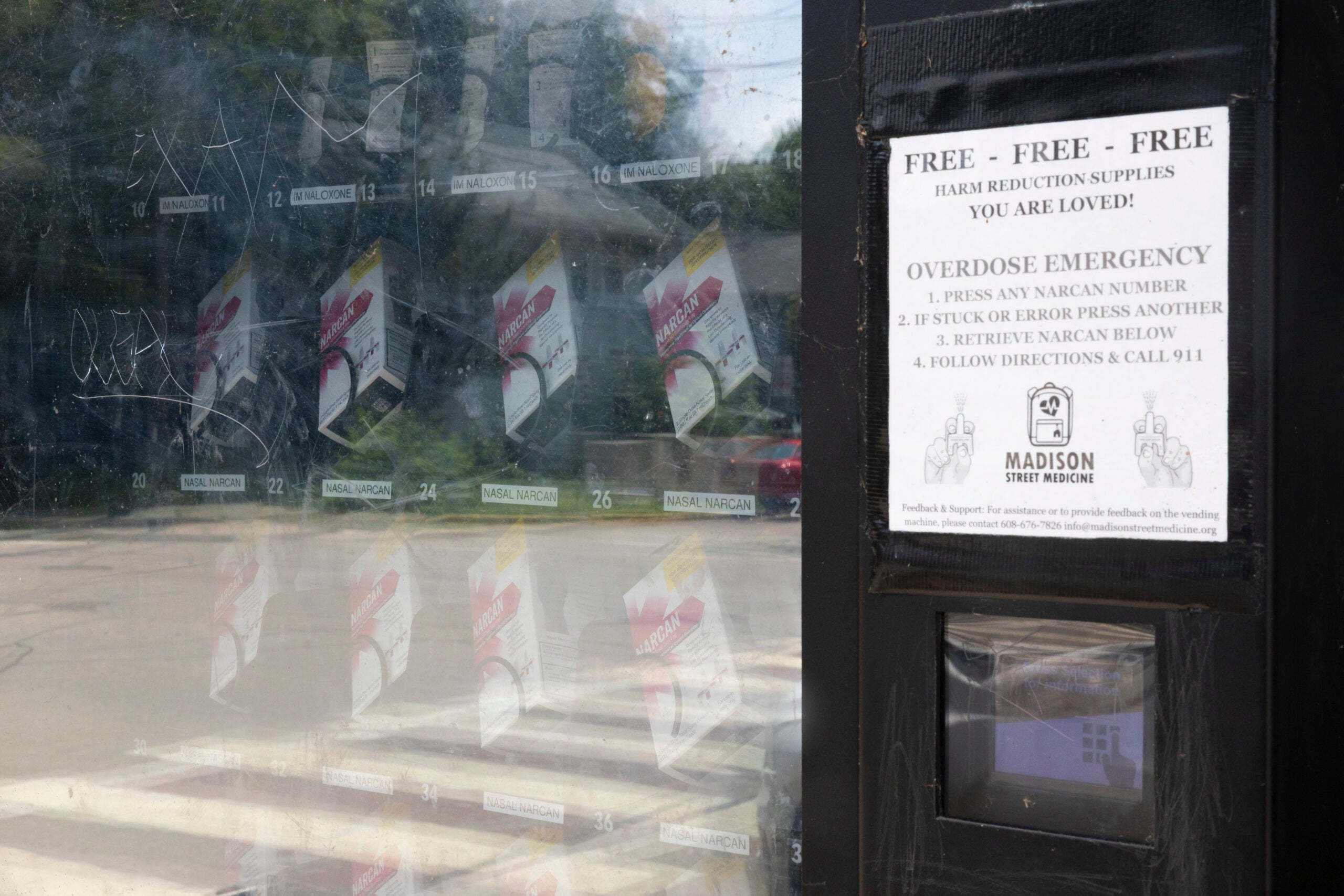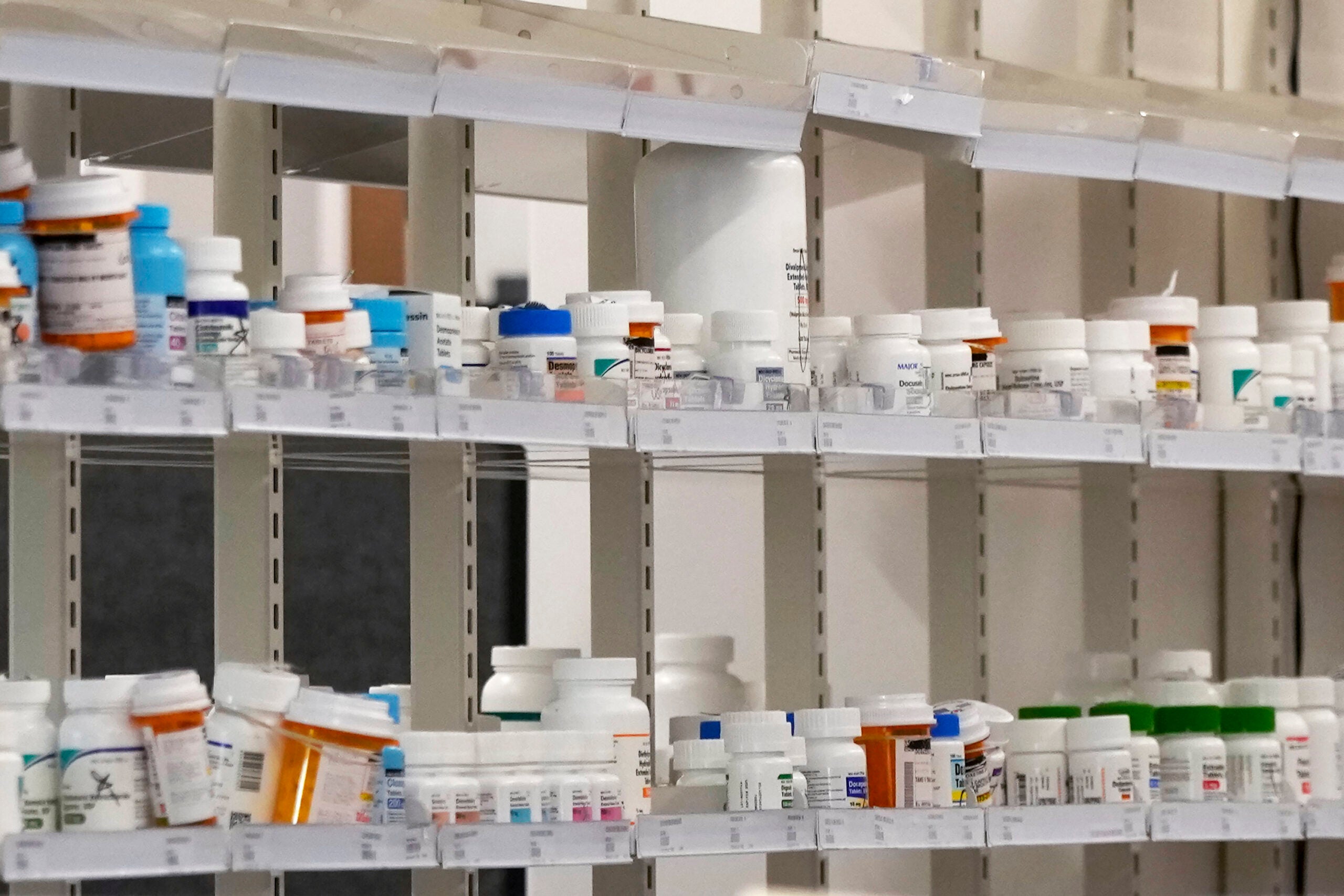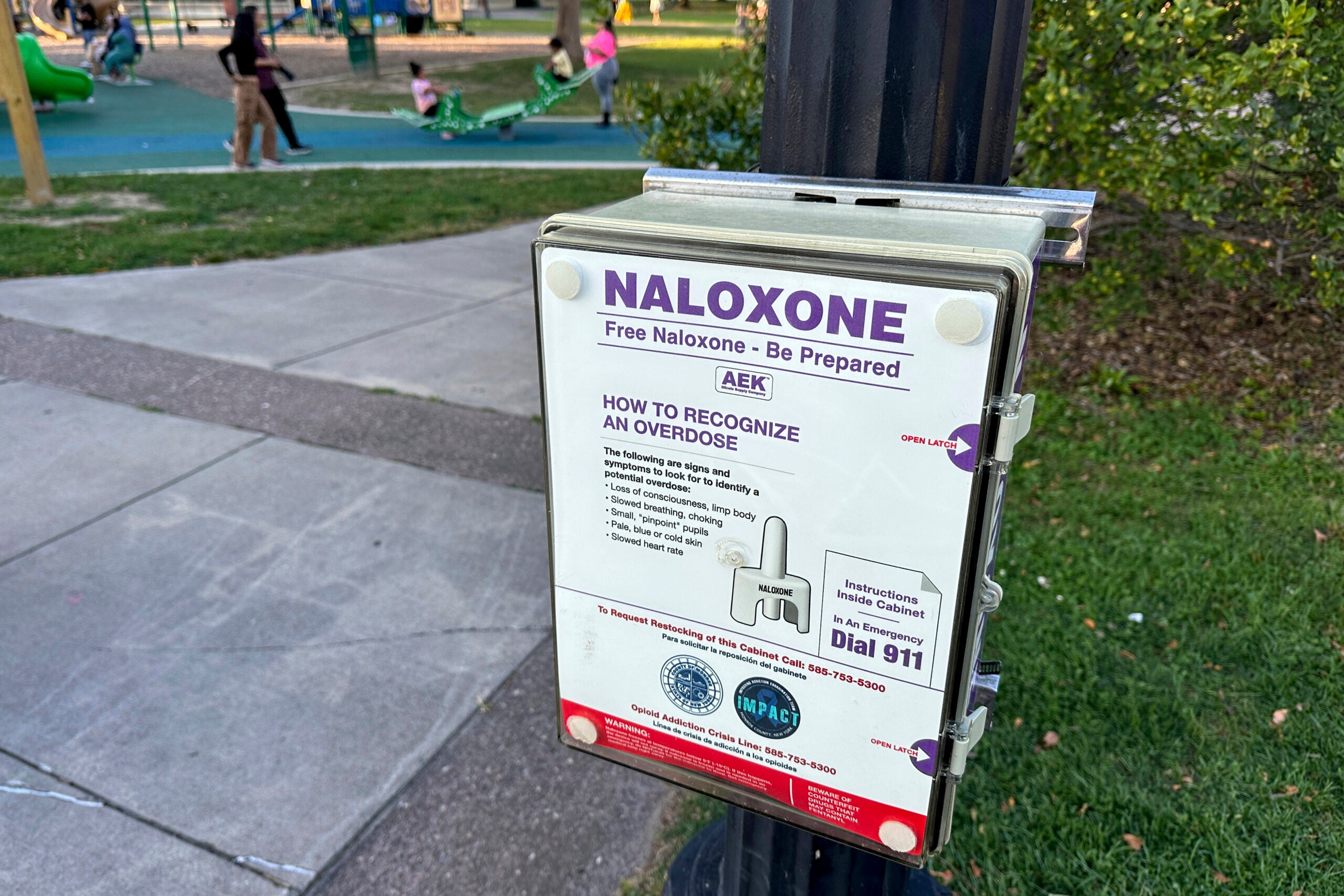Wisconsin collected the most unused prescription drugs in the country during the U.S. Drug Enforcement Administration’s most recent Drug Take Back Day, the state Department of Justice recently announced.
On Monday, Wisconsin Attorney General Josh Kaul told WPR’s “Wisconsin Today” that the state’s recent performance matches success it has had in past years for the prescription drug disposal program.
For the previous five Drug Take Back Days, Wisconsin had collected more pounds of drugs than any other state. The DEA started the biannual effort in 2010.
News with a little more humanity
WPR’s “Wisconsin Today” newsletter keeps you connected to the state you love without feeling overwhelmed. No paywall. No agenda. No corporate filter.
So, why did Wisconsin rank first nationally again after the daylong event April 27?
“Fundamentally, I think it’s about the partnerships that we have with law enforcement agencies and public health departments around the state who are really committed to this program,” Kaul said.
One example of these partnerships is the statewide drug drop box program. There are nearly 500 permanent drop box locations where people can securely dispose of their unwanted or unused prescription drugs at any time throughout the year.
While the DEA accepts most prescription drugs, the primary goal of the Drug Take Back program is to reduce access to non-prescribed opioids.
The illegal supply of opioids is “incredibly toxic right now,” thanks to the rise of fentanyl-laced narcotics, Kaul said. State health department data shows nearly 3,000 Wisconsinites died from opioid overdoses in 2021 and 2022, the last two years of data the department shared.
Funds from the national opioid settlement agreements also have a role to play in reducing opioid overdoses in Wisconsin. Kaul said the state’s Joint Finance Committee allocated money for law enforcement agencies to prevent opioid abuse. Recently, 12 agencies earned one of these grants for matters like medication-assisted treatment.
“We want to do everything we can to ensure that people who are struggling with substance use disorder get into treatment and recovery programs,” Kaul said.
Whether it comes to drop boxes or spreading awareness of Drug Take Back days, Kaul praised Wisconsin’s efforts.
“Consistently, we’ve seen Wisconsinites step up and make sure that those medications are safely disposed of,” he said.
What happens to prescription drugs once they’re in the boxes?
Once the drugs are in the drop boxes, Kaul said the drugs go to one spot in Wisconsin before traveling to an Indiana facility, where the drugs are “safely incinerated.” The medications cannot be reused or recycled by pharmaceutical companies because this creates risks of the medications being “tampered with,” he said.
Kaul said incineration is the safest way to handle the drugs.
“If you throw it into the trash, somebody could potentially find those medications,” he said. “Certainly, if you leave them in your medicine cabinet, somebody could grab them and misuse them. And even flushing medications down the toilet creates risks for the health of our water because water reclamation facilities aren’t able to filter out all of the medications that can be flushed.”
How to get help
If you are struggling with addiction, call 211 or the crisis hotline at 988 to be connected with resources.
The opioid reversal drug Narcan can be purchased at pharmacies without a prescription. It’s also available for free through Wisconsin’s Narcan Direct program. Click here for a map of where it’s available in Wisconsin.
Naloxone, the generic form of Narcan, can be administered via injection or a nasal spray.
Wisconsin Public Radio, © Copyright 2025, Board of Regents of the University of Wisconsin System and Wisconsin Educational Communications Board.

